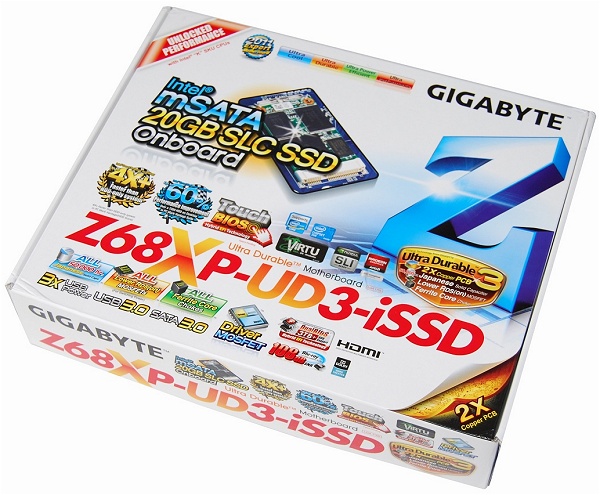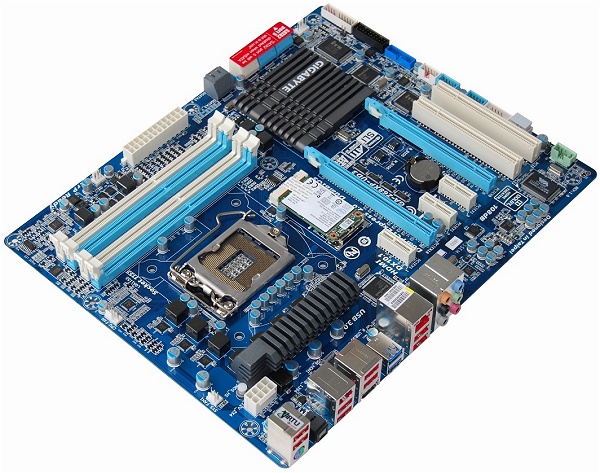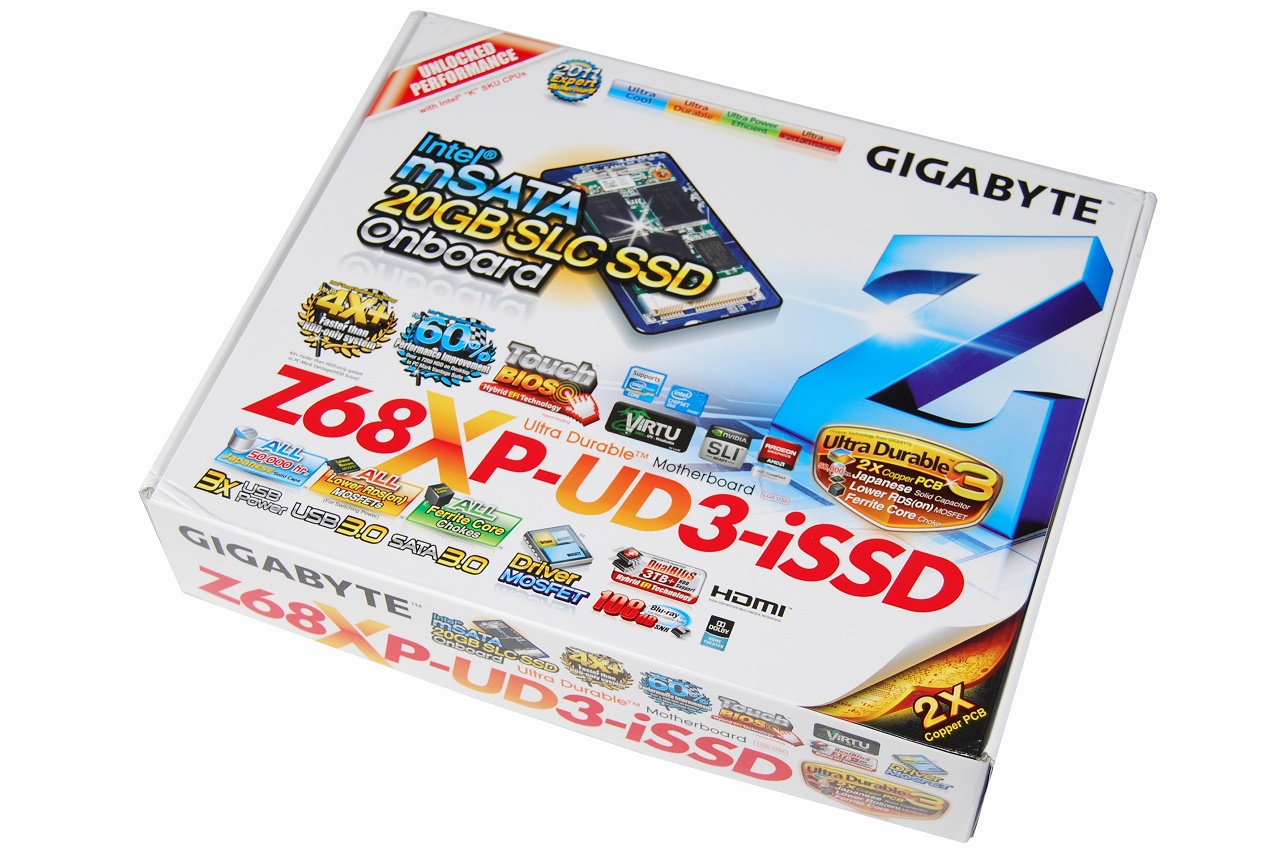Features & Specifications
The Gigabyte Z68XP-UD3-iSSD sports four DIMM slots, dual PCIe x16 slots, FireWire, eight SATA ports, 8-channel audio, Gigabit LAN and a bunch of other trinkets – not least of which is Intel's Smart Response Technology. Some of the board's features are standard across all Z68-based products, such as multi-GPU support via CrossfireX or SLI, as well as support for two SATA 6Gb/s ports, the bare minimum you'll find on any Z68 board.


The default SATA ports are accompanied by another two SATA 6Gb/s connectors courtesy of the Marvell 88SE9172 controller, which also adds hardware RAID (RAID 0 and RAID 1), NCQ, AHCI and "Hot Plug" functions. Gigabit LAN is delivered via the Realtek RTL8111E controller, which utilizes the PCI Express bus for maximum throughput. The Z68XP-UD3-iSSD only offers one Gigabit LAN jack, but this should be sufficient for most.

Gigabyte tackled the audio with Realtek's ALC889 chip, which features Dolby Home Theater, a codec that supports 16/20/24-bit SPDIF input and output with up to 192kHz sample rate. It also features secondary SPDIF-out and a converter to transport digital audio output to an HDMI transmitter.


The Z68XP-UD3-iSSD's FireWire is supplied by the VIA VT6308, which supports dual IEEE 1394a ports. Gigabyte has also improved connectivity by including a pair of Etron EJ168 chips that support four USB 3.0 ports. This, of course, is in addition to the dozen USB 2.0 ports provided by the Intel Z68 chipset.
Rather than sticking all four USB 3.0 ports on the motherboard's I/O panel, Gigabyte has mounted two of them on-board using a single header, though the company doesn't supply the adapter to use them.

The crown jewel is Intel's SSD 311 20GB drive, which is attached to the board via mSATA, a connector that's more commonly used in mobile systems. It's worth mentioning that Intel's device shares SATA port five, meaning you'll lose that SATA port by default if you intend to use SRT.
Official pricing puts this SLC-based SSD at $110 making it a very expensive 20GB cache drive. However, Gigabyte is asking only $240 for their board and the drive together, which isn't bad when you consider the Z68XP-UD3-iSSD has a comparable feature set to the $170 Z68X-UD3H-B3.

Additionally Gigabyte has also included its own exclusive EZ Smart Response utility. One of the disadvantages we found to the Intel SRT was that it required the use of RAID which meant IDE and AHCI installations would suffer the dreaded BSOD when trying to load Windows. This could be mitigated by manually editing the Windows registry, but obviously that's never an ideal situation to be in.
Gigabyte's EZ Smart Response utility removes all the heavy lifting by automatically setting up any IDE or AHCI configuration in the blink of an eye. Not only will it edit the Windows registry to prevent a BSOD but it will also configure the Intel Matrix Storage Manager. All you have to do is install the Intel SRT utility and enable the SSD cache.
